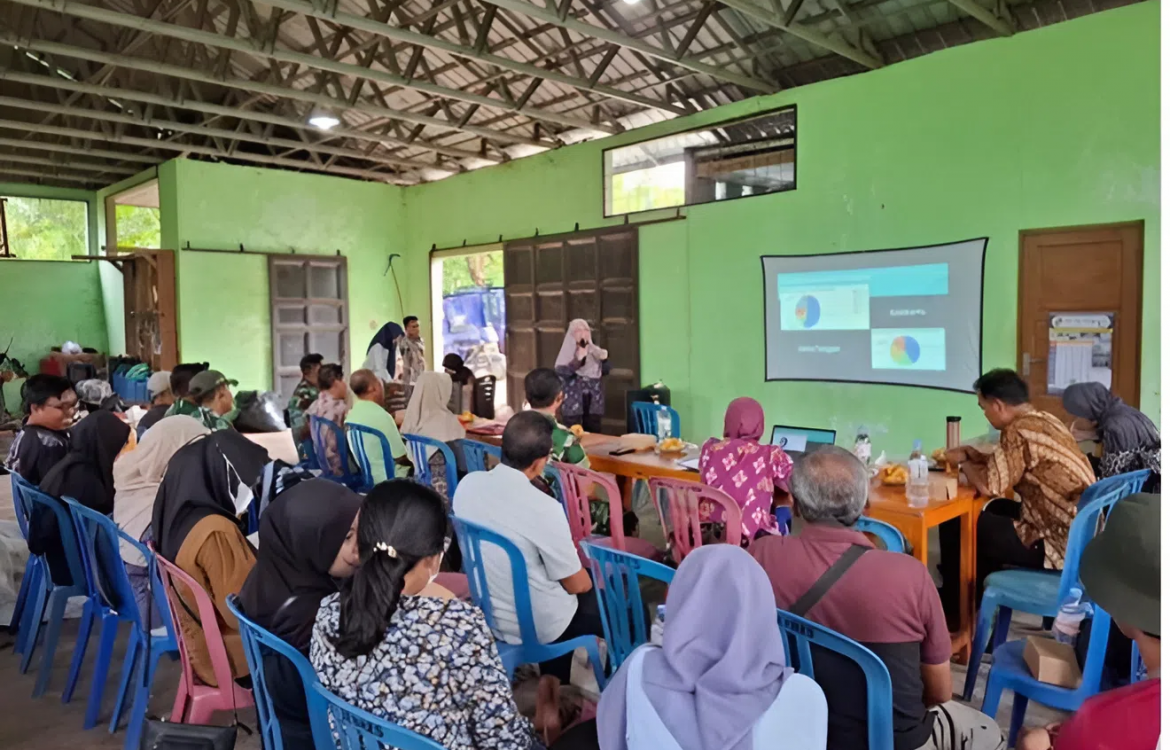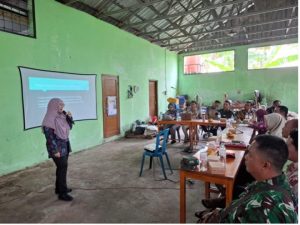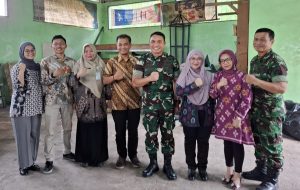
UNS Collaborates with TPS3R “Mojo Makmur” to Manage Organic Waste through UMAITA Integration in Surakarta
To promote sustainable organic waste management, the Institute for Research and Community Engagement (LPPM), Universitas Sebelas Maret (UNS), organized a Dissemination and Focus Group Discussion (FGD) session entitled Organic Waste Management at the “Reduce, Reuse, Recycle Waste Processing Facility (TPS3R) Mojo Makmur” in Jebres, Surakarta. The activity was attended by the Commander of Military District 0735/Surakarta, Lt. Col. Inf. Fictor Juradi Situmorang, S.I.P., M.I.P., who expressed interest in collaborating to strengthen organic waste management efforts.
 The event opened with remarks by Prof. Dr. Suryanto, S.E., M.Si., Head of the Community Engagement Program (PKM). He highlighted the common perception that organic waste is often viewed as useless or even problematic. However, he emphasized that through the integration model of UMAITA—Poultry, Maggot, Fish, and Plants—organic waste can be transformed into valuable and economically beneficial resources.
The event opened with remarks by Prof. Dr. Suryanto, S.E., M.Si., Head of the Community Engagement Program (PKM). He highlighted the common perception that organic waste is often viewed as useless or even problematic. However, he emphasized that through the integration model of UMAITA—Poultry, Maggot, Fish, and Plants—organic waste can be transformed into valuable and economically beneficial resources.
The official opening was delivered by Santi Yuniati, S.So., M.A.P., Secretary of the Jebres Sub-District Office. She noted that the collaboration with UNS is not limited to this event alone, but is expected to continue, with the university serving as an academic partner that consistently supports TPS3R initiatives.
The event featured Prof. Dr. Izza Mafruhah, S.E., M.Si., as the main speaker. She presented insights on the circular economy and the innovation of using black soldier fly (BSF) maggots to address organic waste issues. Prof. Izza explained that Indonesia generates approximately 34.2 million tons of waste annually, with around 40% still unmanaged. In Surakarta, particularly the Jebres area, household and student food waste constitutes the largest portion. Maggot farming, she argued, offers an effective solution, being fast, odorless, safe, and environmentally friendly.
“Not only is maggot farming environmentally sustainable, but it also holds high economic value. Products like dried maggots and maggot meal can serve as feed for poultry and fish, reducing feed costs by up to 40%,” she explained.
During the FGD session moderated by Dr. Nurul Istiqomah, S.E., M.Si., Mr. Sunarno, manager of TPS3R Mojo Makmur, described the current operations involving composting, liquid fertilizer production, and maggot cultivation, despite facing challenges related to waste supply and distribution.
Lt. Col. Fictor Situmorang affirmed the TNI’s commitment to supporting the initiative, noting that organic waste management aligns with national efforts in food security and environmental cleanliness. “We are ready to collaborate with all stakeholders to ensure the success of this program,” he stated.
Community representatives raised concerns about the lack of public participation in waste sorting, while Mrs. Santi from the sub-district office encouraged the establishment of a community-based waste bank as a strategic long-term solution.
One innovative proposal discussed was forming partnerships with local food vendors to supply leftover food for maggot cultivation and utilizing liquid fertilizer for hydroponic agriculture at the TPS3R site.
This activity is expected to serve as a milestone in developing an integrated organic waste management ecosystem that leverages community participation and local technology, with support from government bodies, academics, and the wider community.

